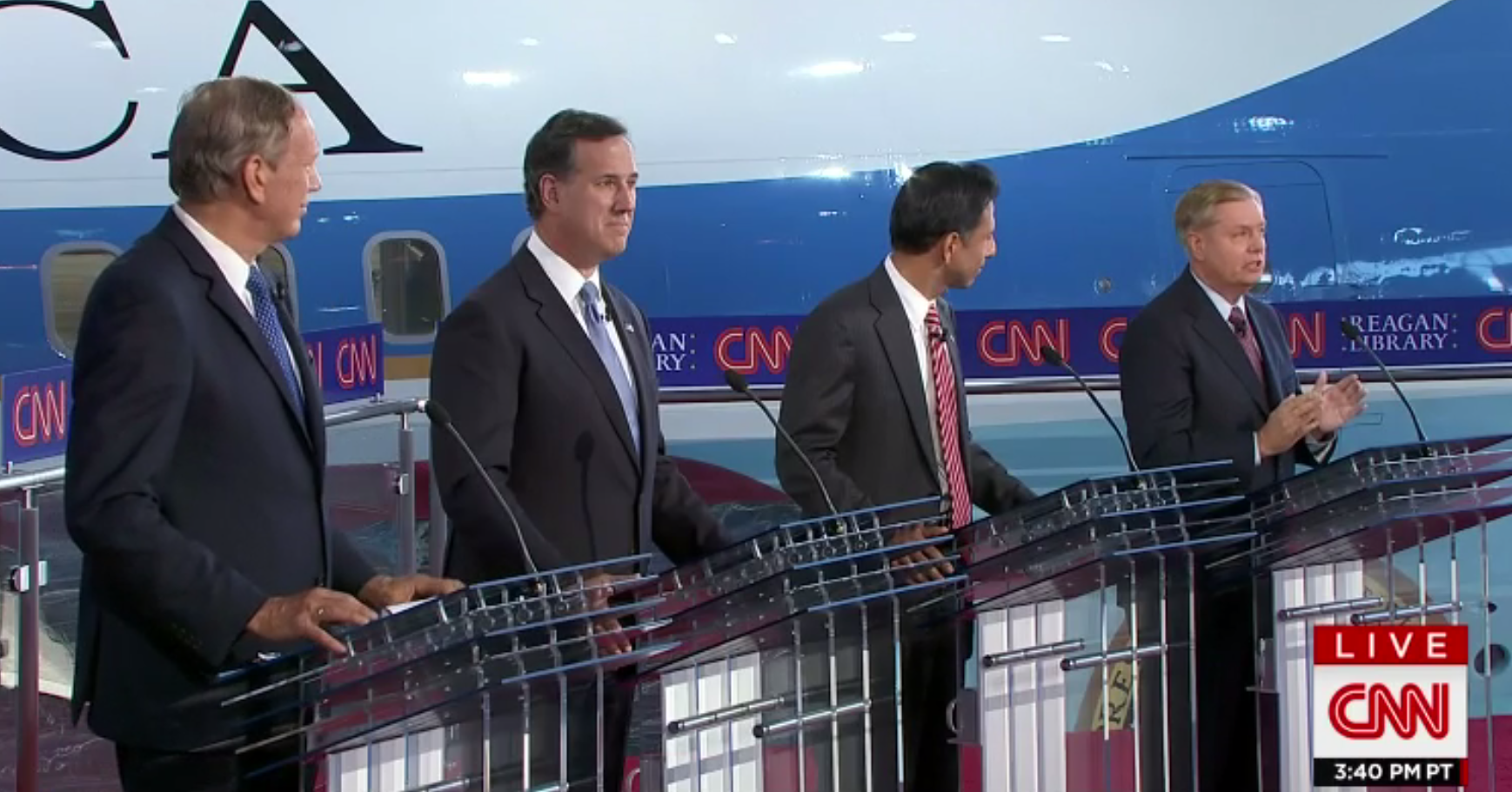No Winners in Tonight's GOP Undercard Debate
If you watched the whole thing, you probably lost.

What did we learn from tonight's undercard debate? Not much.
The four-man show featured a quartet of candidates who have found almost no popular support—George Pataki, Lindsey Graham, Bobby Jindal, Rick Santorum—the most successful of which, Santorum, is currently polling at just 0.8 percent.
The four-way face off told us almost nothing we didn't already know: The candidates don't much like Barack Obama, Obamacare, the Iran deal, amnesty, Planned Parenthood, or undocumented immigrants. Most of them aren't big fans of Donald Trump either; Pataki and Jindal criticized him strongly and directly; only Rick Santorum kinda-sorta defended him, saying "I don't think it helps when Republicans attack Republicans personally."
Each of the candidates stuck to his strengths, or at least familiar territory, effectively playing the characters these men are known for playing: Graham was extremely hawkish (he answered an early question about Trump by explaining that he would bomb the Islamic State); Santorum played up his religious brand of conservatism and his focus on workers rather than business owners (he argued that immigration hurts American workers and that Republicans should be more aggressive in their support for the minimum wage); Jindal delivered aggressive attacks on both President Obama and the Washington Republican establishment (at one point he criticized both Graham and Santorum for voting for Supreme Court Chief Justice John Roberts); and Pataki reminded people, yet again, that he was governor of New York on 9/11 (Pataki also led off the debate by reminding people how much he loves Ronald Reagan).
But no one really had a genuine standout moment, and no one is likely to come out of this with much more support than they went in with. No one, in other words, really won the debate—and anyone who watched the whole thing probably ended up losing.


Show Comments (9)